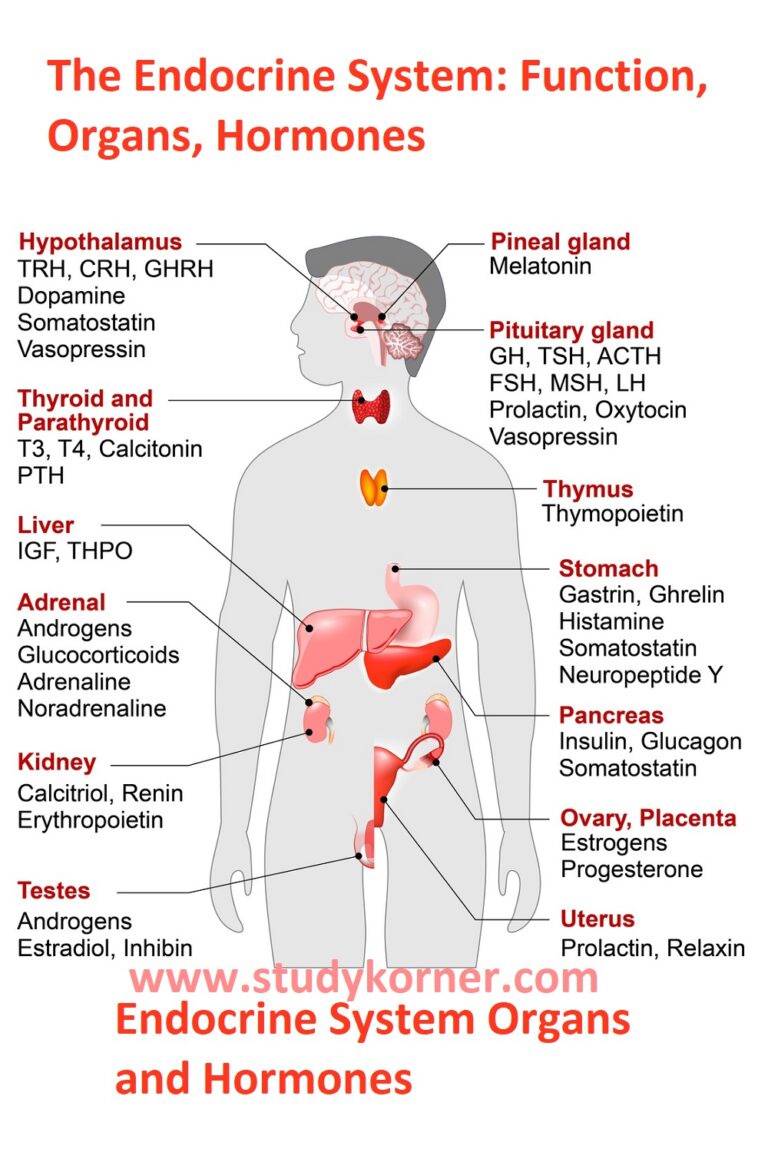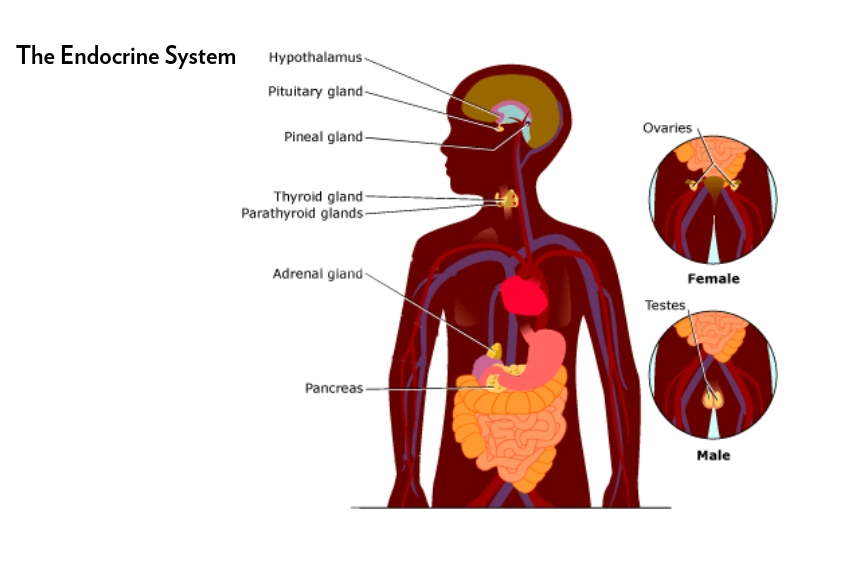Endocrine System Humans Chart Stock Illustration 1624346113 Biology Diagrams human endocrine system, group of ductless glands that regulate body processes by secreting chemical substances called hormones. Hormones act on nearby tissues or are carried in the bloodstream to act on specific target organs and distant tissues.

The endocrine system is a network of glands and organs located throughout the body. It's similar to the nervous system in that it plays a vital role in controlling and regulating many of the The endocrine system, made up of all the body's different hormones, regulates all biological processes in the body from conception through adulthood and into old age, including the development of the brain and nervous system, the growth and function of the reproductive system, as well as the metabolism and blood sugar levels. Hypothalamus: This is a structure deep within your brain (which is an organ).It's the main link between your endocrine system and your nervous system.It makes two hormones that your pituitary gland stores and releases (oxytocin and vasopressin) and makes and releases two hormones (dopamine and somatostatin).Pancreas: This organ is in the back of your abdomen (belly).

The Endocrine System and Glands of the Human Body Biology Diagrams
endocrine system, any of the systems found in animals for the production of hormones, substances that regulate the functioning of the organism.Such a system may range, at its simplest, from the neurosecretory, involving one or more centres in the nervous system, to the complex array of glands found in the human endocrine system.. Comparative endocrinologists investigate the evolution of The endocrine system is a complex network of glands and organs. It uses hormones to control and coordinate your body's metabolism, energy level, reproduction, growth and development, and response to injury, stress, and mood. The following are integral parts of the endocrine system: Hypothalamus.

The endocrine system is involved in every process of the human body. Starting from the motility of the digestive system, to the absorption and metabolism of glucose and other minerals, hormones can affect a variety of organs in different ways.Some hormones affect the retention of calcium in bones or their usage to power muscle contraction. The endocrine system is made up of different glands that make chemicals called hormones. Hormones act as "messengers" to control many body functions. The endocrine system makes hormones that help control: Growth; Reproduction ; Sexual development; Energy ; Response to physical stress or trauma ; Levels of water, salt and sugar in the body

